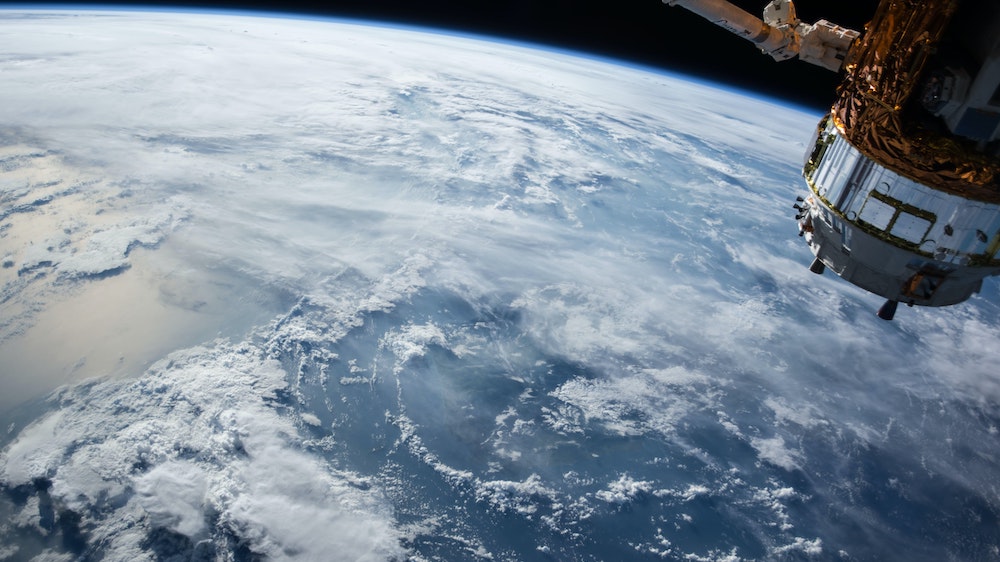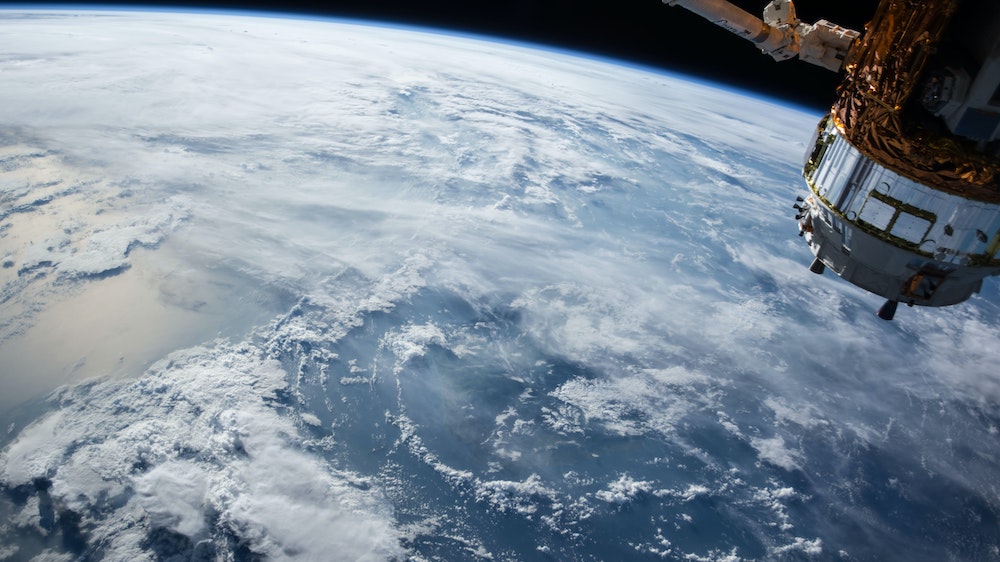
Photo by NASA on Unsplash
evolutionQ was awarded a Space Technology Development Program (STDP) contribution by the CSA to develop solutions to advance satellite-based secure quantum communication services and tools to address challenges related to satellite-based Quantum Key Distribution (QKD) networks.
Cryptography underpins the secure communications required for the digital, network-based social and financial interactions that are at the heart of modern society and the economy, including banking, the sharing of confidential healthcare data, and the exchange of sensitive information between governmental institutions. However, rapid advancements in quantum computing threaten current encryption methods because quantum computers, when built, will be able to break commonly used cybersecurity systems. It is important to develop tools, like QKD, that will be resistant to such quantum threats.
QKD technologies leverage the fundamental laws of quantum physics to distribute confidential cryptographic keys between two users, while detecting the attempts of malicious third-parties to intercept such keys. Unfortunately, typical terrestrial methods to establish such direct secure connection between locations are limited to relatively short distances, of the order of at most 200 km. This is clearly a challenge for a country as vast as Canada. Satellite-based QKD will enable secure, reliable, and economical key-sharing across Canada.
“A powerful quantum computer has the power to decimate today’s cryptography. As key quantum computing milestones are achieved, the need for quantum-safe solutions intensifies,” said Dr. Michele Mosca, President and CEO of evolutionQ. “Robust cryptography is absolutely necessary for our safety and the proper functioning of our digital economy. We must adopt quantum-safe solutions to secure and safeguard our critical infrastructures, financial services and intellectual property."
“Quantum Key Distribution is an important tool in addressing the quantum threat. QKD uses the fundamental laws of physics to protect information shared between two parties.” CTO of evolutionQ, Dr. Norbert Lütkenhaus remarked. “Satellite-based QKD is essential for a vast country like Canada and will help secure communications from coast to coast. evolutionQ is poised to utilize its expertise and develop solutions to help establish satellite QKD, and to integrate it with existing terrestrial solutions.”
evolutionQ will develop tools to address the challenges unique to satellite-based QKD. This will be accomplished by modelling the role and performance of QKD satellites, and by designing optimization algorithms to integrate QKD satellites with terrestrial networks. The software solutions will be designed to be integrated with existing and planned satellite hardware. The project is expected to last 24 months.
The initiative will also help Canada safeguard sovereignty in the quantum age and strengthen Canadian leadership in the space and quantum sectors. The initiative aligns with the new Space Strategy for Canada, the safety and security principle in Canada’s Digital Charter and the Government of Canada’s Innovations and Skills Plan.
This project is undertaken with the financial support of the Canadian Space Agency.
Cryptography underpins the secure communications required for the digital, network-based social and financial interactions that are at the heart of modern society and the economy, including banking, the sharing of confidential healthcare data, and the exchange of sensitive information between governmental institutions. However, rapid advancements in quantum computing threaten current encryption methods because quantum computers, when built, will be able to break commonly used cybersecurity systems. It is important to develop tools, like QKD, that will be resistant to such quantum threats.
QKD technologies leverage the fundamental laws of quantum physics to distribute confidential cryptographic keys between two users, while detecting the attempts of malicious third-parties to intercept such keys. Unfortunately, typical terrestrial methods to establish such direct secure connection between locations are limited to relatively short distances, of the order of at most 200 km. This is clearly a challenge for a country as vast as Canada. Satellite-based QKD will enable secure, reliable, and economical key-sharing across Canada.
“A powerful quantum computer has the power to decimate today’s cryptography. As key quantum computing milestones are achieved, the need for quantum-safe solutions intensifies,” said Dr. Michele Mosca, President and CEO of evolutionQ. “Robust cryptography is absolutely necessary for our safety and the proper functioning of our digital economy. We must adopt quantum-safe solutions to secure and safeguard our critical infrastructures, financial services and intellectual property."
“Quantum Key Distribution is an important tool in addressing the quantum threat. QKD uses the fundamental laws of physics to protect information shared between two parties.” CTO of evolutionQ, Dr. Norbert Lütkenhaus remarked. “Satellite-based QKD is essential for a vast country like Canada and will help secure communications from coast to coast. evolutionQ is poised to utilize its expertise and develop solutions to help establish satellite QKD, and to integrate it with existing terrestrial solutions.”
evolutionQ will develop tools to address the challenges unique to satellite-based QKD. This will be accomplished by modelling the role and performance of QKD satellites, and by designing optimization algorithms to integrate QKD satellites with terrestrial networks. The software solutions will be designed to be integrated with existing and planned satellite hardware. The project is expected to last 24 months.
The initiative will also help Canada safeguard sovereignty in the quantum age and strengthen Canadian leadership in the space and quantum sectors. The initiative aligns with the new Space Strategy for Canada, the safety and security principle in Canada’s Digital Charter and the Government of Canada’s Innovations and Skills Plan.
This project is undertaken with the financial support of the Canadian Space Agency.




 IonQ Achieves Industry Leading Performance on Next Generation Barium Qubits
IonQ Achieves Industry Leading Performance on Next Generation Barium Qubits